Giro d'Italia: Sprinters expecting another opportunity on stage 3
Flat finale awaits peloton in Cagliari
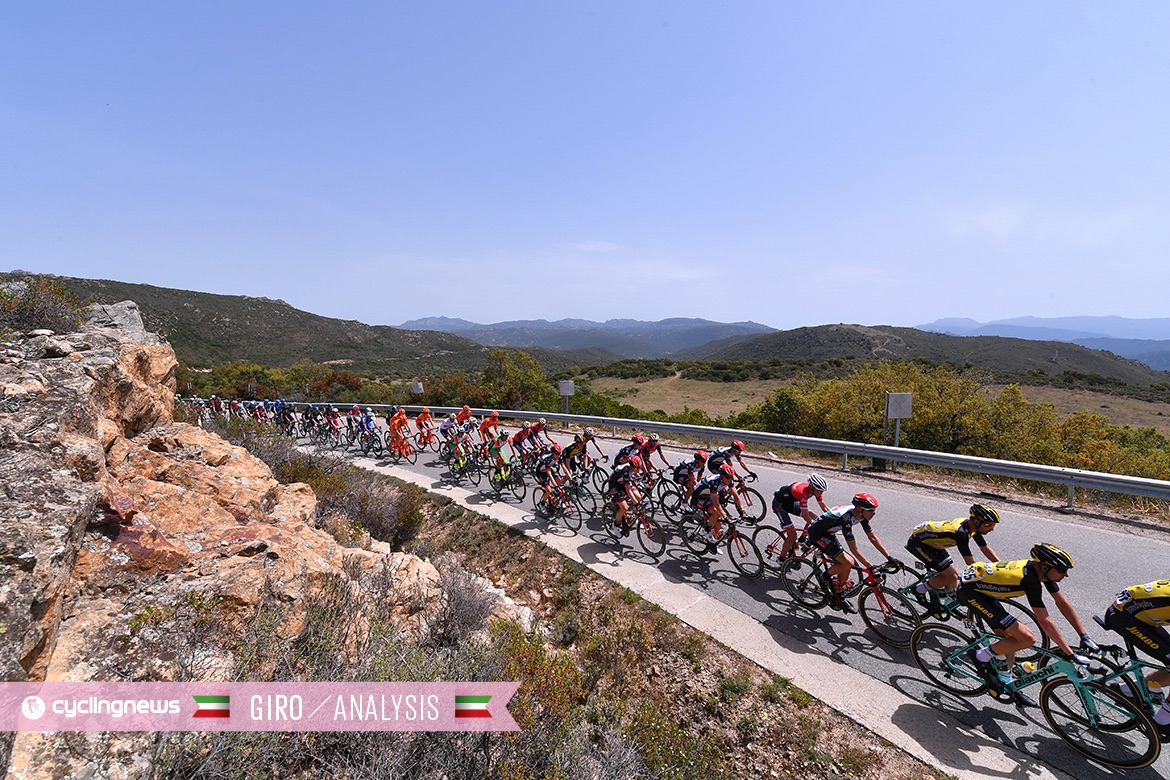
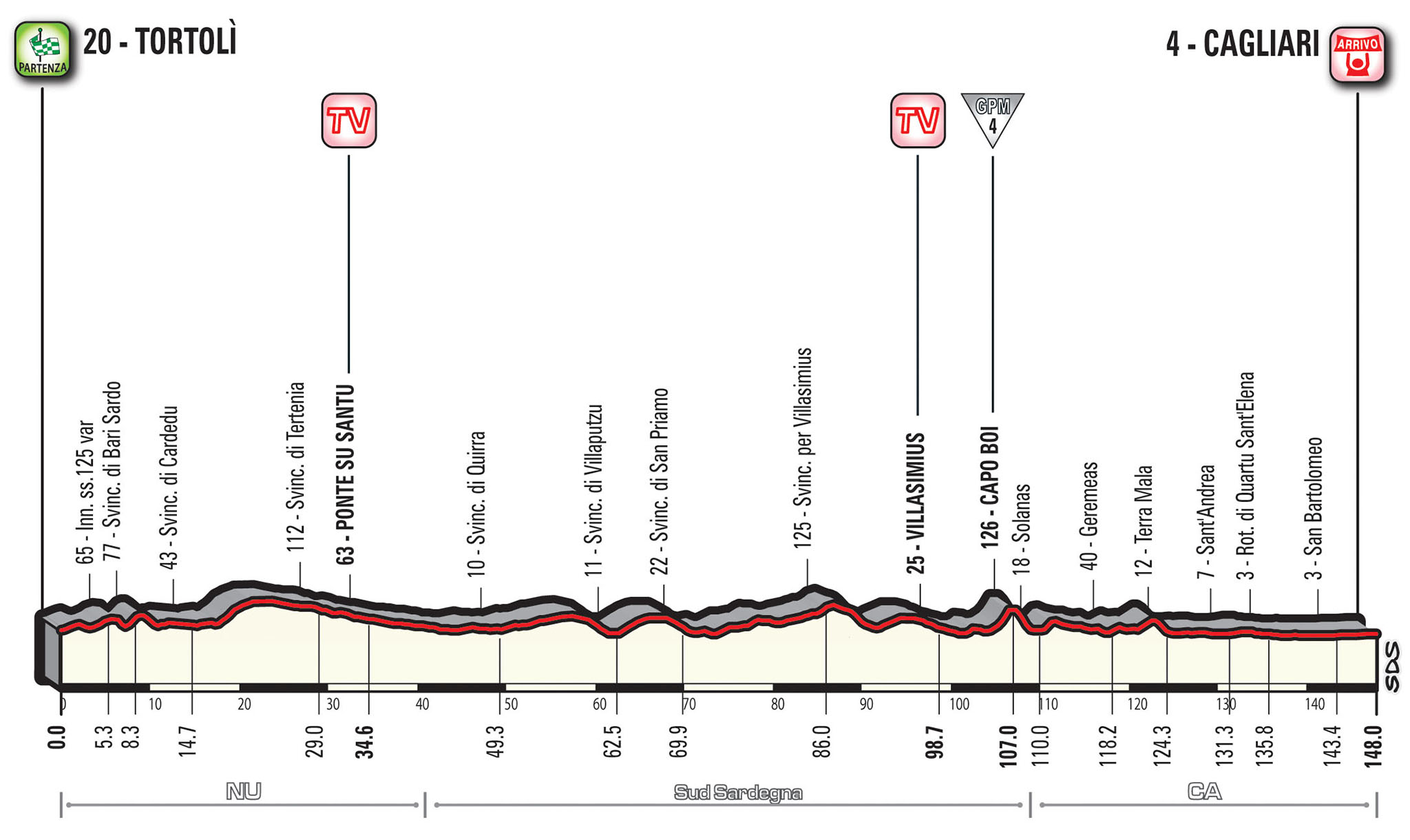
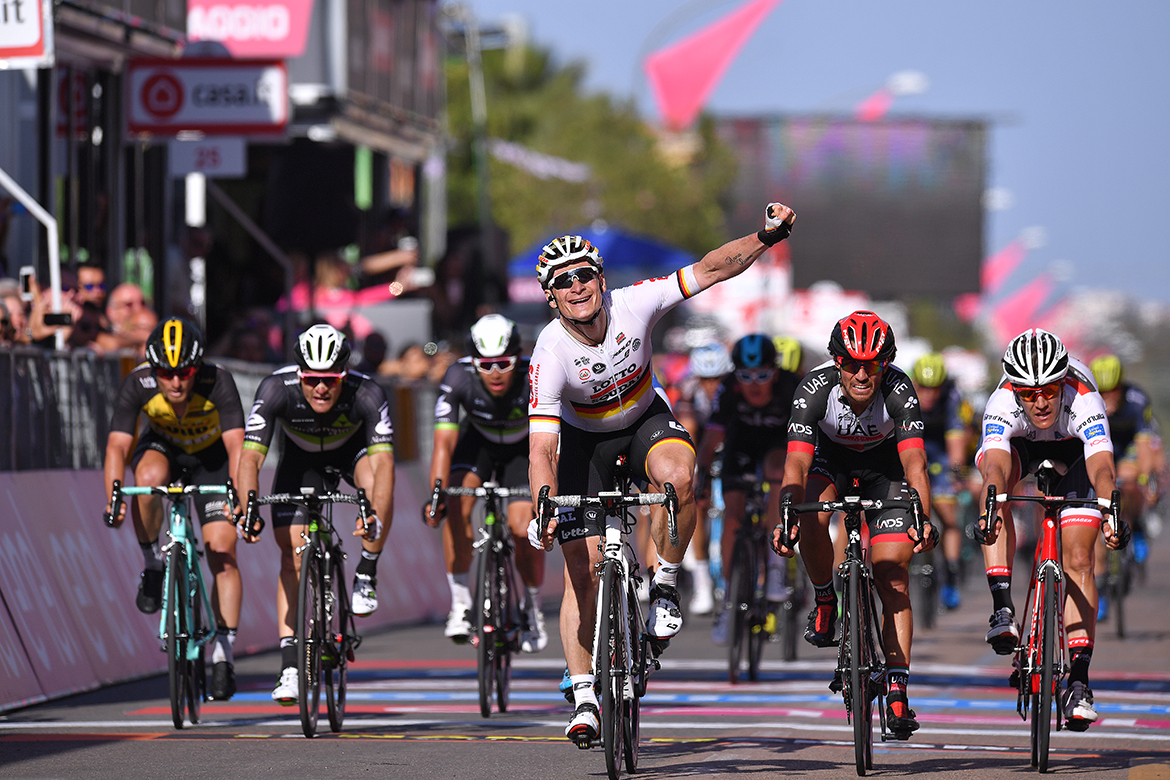
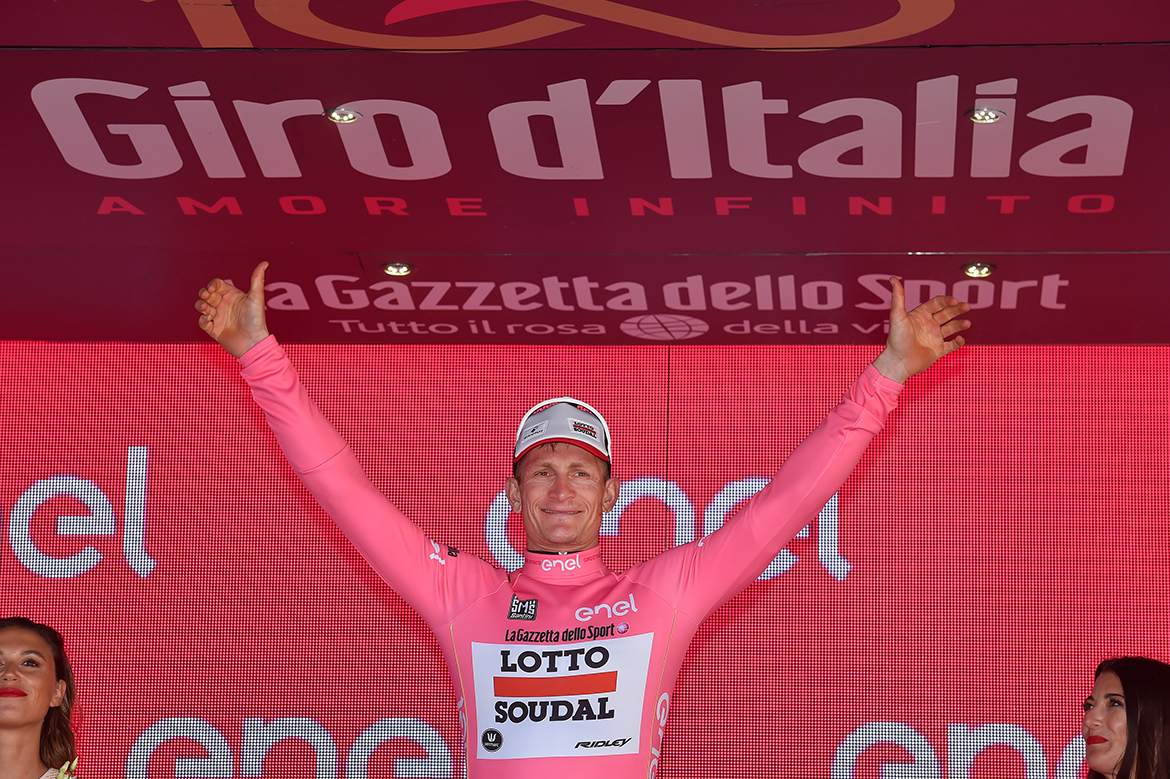
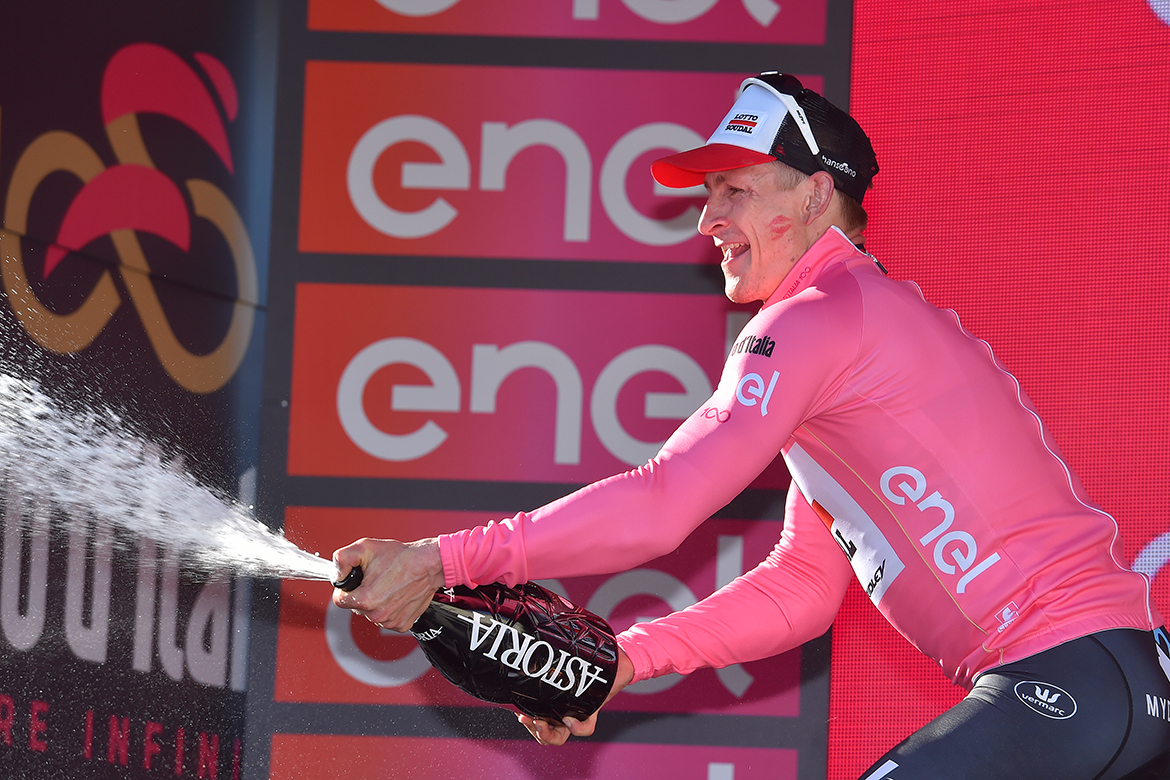
After Saturday's lucky break for the fast men at the Giro d'Italia, where a stage that looked made for a long-distance attack ended in a mass dash for the line, Sunday could well be another golden opportunity for the sprinters to prove their worth.
On paper, stage 3 of the Giro d'Italia, the final leg of the trio of Sardinia stages, is far and away the most straightforward, and at 148 kilometres, the shortest.
Starting in Tortolì on the island's eastern side, stage 3 concludes in Cagliari, the same southern city that hosted the start and finish of the Giro d'Italia's first ever visit to Sardinia, back in 1961. That year, when the Giro was crisscrossing Italy to celebrate the centenary of the country's political union, the Sardinian stage saw Italian domestique Oreste Magni take the biggest victory of his career with a solo win.
Cagliari has been visited twice since then. A monster 231km slog across the western side of the island finished there in 1991, taken in a bunch sprint by Mario Cipollini. That was the fourth of his all-time record of Giro stage wins of 42. Back again in 2007, the Cagliari stage was initially won in another sprint by another top Italian speedster, Alessandro Petacchi – a victory he later lost because of a sanction – and it was ultimately awarded to Robert Forster of Germany.
10 years later, stage 3 this May runs through much gentler terrain than Saturday's hillier affair, and at 148km in length it is over 70km shorter, too.
"I'm pretty confident we could see a bunch sprint, given the type of terrain and the length of the stage," race director Mauro Vegni told Italian specialist magazine Bicisport before the Giro d'Italia.
Read more on this article
Get The Leadout Newsletter
The latest race content, interviews, features, reviews and expert buying guides, direct to your inbox!
- Giro d'Italia: Greipel sprints to stage 2 victory
- Giro d'Italia: Stage 2 finish line quotes
- Giro d'Italia: Ewan 'devastated' after foot comes out of pedal in stage 2 sprint
- Greipel steps up to end Lotto Soudal's dire spring
- Giro d'Italia: Stage 2 highlights – Video
The sprinters will be even more motivated should they read the route book, which claims that the finish takes place on roads that are flat for the last 10 kilometres, "wide and with a number of roundabouts, but with no tricky curves. The home straight is 800 metres long on eight-metre wide roads, up until the last 350 metres."
There is a chunk of Italian city paved road at that point, not to mention a very gentle chicane, but this should not stop the sprinters, particularly with a rest day to come on Monday, and two days before a daunting ascent of Mount Etna.
The stage 3 finish, too, is on a street named Via Roma, which will doubtless have many journalists milking the Milan-San Remo finale comparisons should a sprinter win on a road with the same name as the mythical finale of La Primavera. But there is no Poggio beforehand on Sunday, and certainly this is not a repeat of Friday's technical run-in into Olbia, which André Greipel (Lotto Soudal), wryly called an "Italian-style" finale.
However, just as Milan-San Remo is often more unpredictable than its profile would suggest possible, there are some real variables in Sunday's stage. The stage's trickiest moment could come when the route finally hits the coast just before the Capo Boi at kilometres 107, 41 kilometres from the finish. Capo Boi is the stage's sole classified climb – a Cat. 4, preceded and followed by a few short ascents – but the sudden, pronounced change of route direction from due south to westwards along the coast could see cross-winds, which in turn could mean echelons.
Teams will, therefore, be keeping a closer than usual eye on weather forecasts, particularly as strong winds are predicted for Sunday afternoon. And after Saturday's surprise result, who's to say there won't be another 24 hours later?
Alasdair Fotheringham has been reporting on cycling since 1991. He has covered every Tour de France since 1992 bar one, as well as numerous other bike races of all shapes and sizes, ranging from the Olympic Games in 2008 to the now sadly defunct Subida a Urkiola hill climb in Spain. As well as working for Cyclingnews, he has also written for The Independent, The Guardian, ProCycling, The Express and Reuters.
